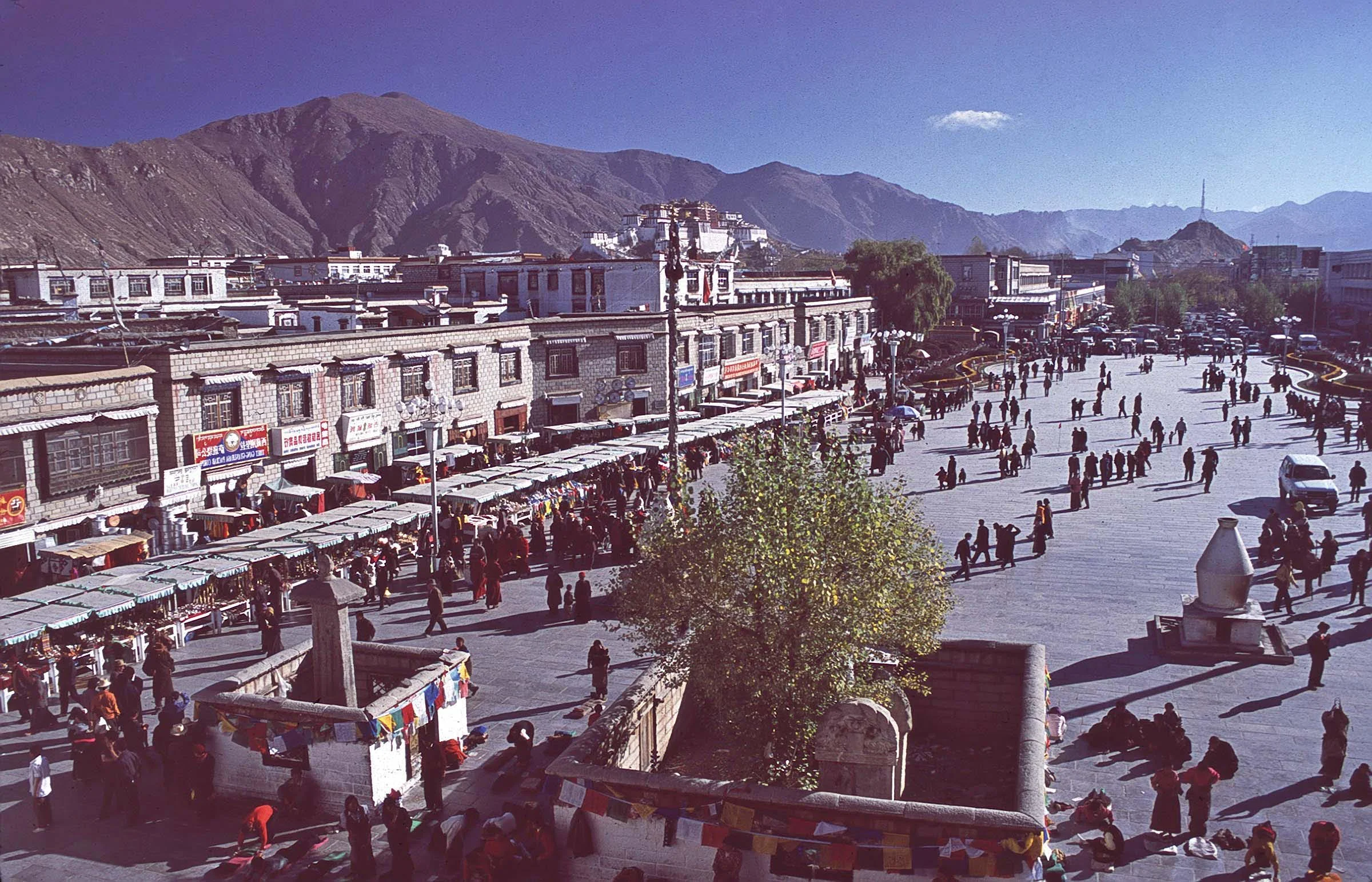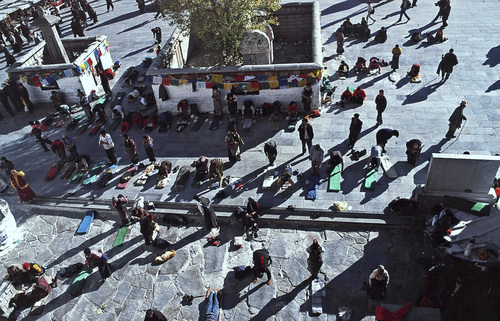Sometimes the best things happen when they are unplanned and you least expect them. That's what happened to Cliff and me on our second day in Lhasa, Tibet when we went to the Jokhang Square.
Jokhang Square
We were not moving too fast yet as the altitude on the Tibetan Plateau was 11,450 feet above sea level. Nevertheless, we went with our guide, Annie, to the Jokhang Square to see the main sites. Things were quite relaxed at first on this crisp November morning without a cloud in the sky.
Jokhang Temple
The first site we encountered was the Jokhang temple. This is considered the most sacred Tibetan temple, initially constructed in the 7th century. Legend has it that the Nepalese and Chinese wives of the king, Songstan Gampo, brought important Buddhist statues to Lhasa as part of their dowries and were kept here.
From here things got a little dicey. Annie, our guide, was actually from Chengdu, China. As it turns out, Tibet is considered an Autonomous Region of the People's Republic of China. What we found out after being in Tibet was that the government of China does not like tourists to roam around independently and there are certain areas that they are not allowed to go unaccompanied by a guide. This did not sit well with Cliff and me, so we created a mutiny and proceeded to Barkhor Street alone while poor Annie stood there protesting.
Barkhor Street
Not only were we enthralled by the sites, sounds and smells of this community high up in the Himalayas, but we felt like we were being exposed to forbidden fruit which Annie thought she could be in trouble for. Would they really execute a guide for letting her clients cruise freely down the Barhor?
Tibetan woman breast feeding her child on Barkhor Street
Sometimes good things happen when you least expect them to. Annie experienced no consequences from the Chinese government for our mutiny. She forgave us (perhaps knowing that her tip depended on it) and we made plans to proceed to Shigatse the next day.





